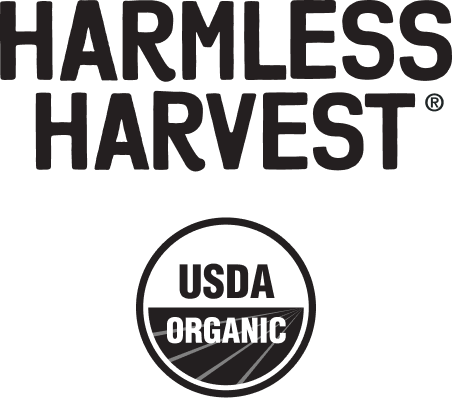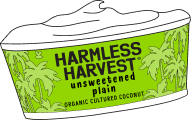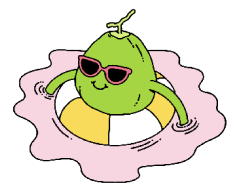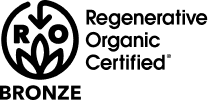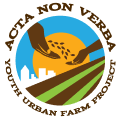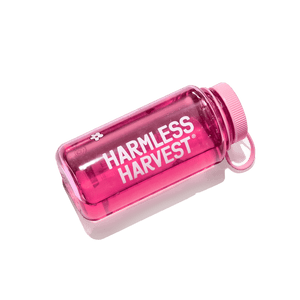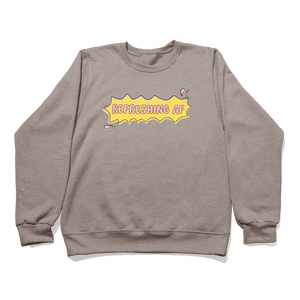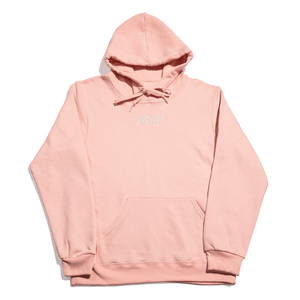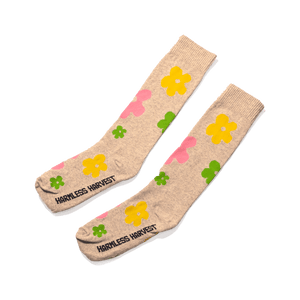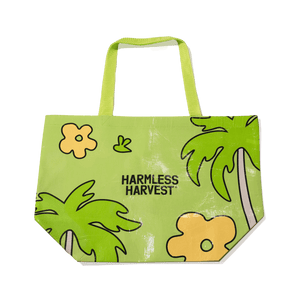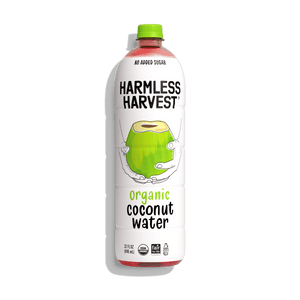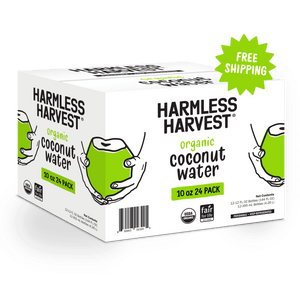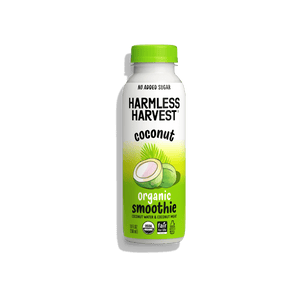
IMPACT REPORT

Our Mission is to farm, craft and share remarkable coconut products that create a natural demand for sustainable farming, better business practices and community impact.
FOUNDER’S
VISION





LETTER FROM
THE CEO
Hi there,
I’m Greg Williamson, the CEO of Harmless Harvest, and I’m honored to be leading this remarkable company into its next chapter. As someone who has long admired Harmless Harvest’s mission and values, I couldn’t be more excited to be part of a team so deeply committed to sustainability, transparency, and crafting delicious, organic products that consumers love. From the very beginning, this company set out to do things differently—and better. That spirit continues to guide everything we do, from our Fair for Life certification to our unwavering dedication to ethical sourcing.
Over the past year, our team has worked tirelessly to not only bring you the highest quality coconut water and coconut-based products, but to do so in a way that respects people and the planet. We've continued to invest in regenerative agriculture practices, improve supply chain transparency, and support the communities we partner with in Thailand. However, like many agricultural businesses, we are facing real challenges due to climate change. A historic drought significantly impacted coconut yields in the region, leading to some product shortage. At the same time, we had been navigating the imposition of tariffs, which have introduced additional costs across our operations. Through it all, we remained focused on delivering the quality you expect from Harmless Harvest while doubling down on our environmental commitments.
Despite these headwinds, I am incredibly optimistic about our future. For six years now, we've been investing in regenerative farming practices aiming to restore soil health, boost biodiversity, and build resilience. In a year where drought challenges persist, our long-term investment is paying off as our regenerative agriculture is showing promising results — demonstrating greater resilience to extreme conditions. We aren’t stopping there, we're also expanding our product offerings, exploring innovative ways to reduce our carbon footprint, and strengthening our partnerships in Thailand.
At Harmless Harvest, we don’t just want to adapt to a changing world—we want to help shape a better one. Thank you for continuing to believe in us and in the possibility of doing business that’s truly harmless. I can’t wait for what is ahead.
Warmly,
Greg Williamson
CEO
DECARBONIZATION PROGRESS:
REFINED OUR PATH TO DECARBONIZATION
WITH A FOCUS ON MEANINGFUL CHANGE
CLIMATE RESILIENCE:
LAUNCHED PILOT FARM IN EFFORT TO
FURTHER BUILD CLIMATE RESILIENCE
BCORP CERTIFICATION PROCESS:
MET STANDARDS FOR SOCIAL AND
ENVIRONMENTAL ACCOUNTABILITY
AND TRANSPARENCY
WASTE MANAGEMENT:
IMPROVED GHG EMISSIONS AND
WASTE TO LANDFILL FROM 2021
FAIR FOR LIFE:
SUPPORTED 9 INITIATIVES IN
COMMUNITIES WHERE WE
FARM OUR COCONUTS
big
moments
OUR DECARBONIZATION
PROGRESS
As we’ve deepened our understanding of true carbon neutrality, we’ve made the difficult decision to adjust our 2030 goal. Recognizing that achieving full neutrality by then is unlikely if we pursue it in the way we believe is right.
OUR DECARBONIZATION
PROGRESS
Instead of relying on carbon credits, we’re committed to making real, measurable reductions across our supply chain, production and distribution, which takes more time but reflects our values and belief in meaningful, action-driven change for long term impact.
OUR DECARBONIZATION
PROGRESS
In 2024 we wanted to better understand our full greenhouse gas emissions footprint and have tracked all our outputs- from the coconuts we source, the team travel we do, to the snacks and paper we use in our office.
OUR DECARBONIZATION
PROGRESS
We believe you can’t improve what you don’t measure, and with this more robust reporting we will continue to refine our roadmap to lower our emissions.
our commitment to meaningful progress
year after year remains unchanged.
might be shifting a
bit, our commitment to
meaningful progress
year after year
remains unchanged.
a more sustainable future through our
initiatives that aim to do good for
people and the planet.
expanding our impact
for a more sustainable future through our
initiatives that aim
to do good for
people and the planet.

waste management plan:
64,237 TONS OF WASTE TO LANDFILL AVOIDED
20,555 tCO2e EMISSIONS AVOIDED
circularity goal
See how climate change has affected our groves, and how we are adapting to keep sharing the coconut water you love.
That's Right,
We're Serious About
Our Coconuts
Fewer than 10% of harvestable
coconuts meet our standards today.
We're working to change that.
Our goals go beyond our products
to something bigger: we are
working to improve the coconut
farm industry with regenerative
agricultural practices.
One Farm At A Time.
We've Invested In
WHAT IS A PILOT FARM?
We are using land from an existing farm to test and quantify how our regenerative practices enhance coconut yields and reduce carbon emissions.
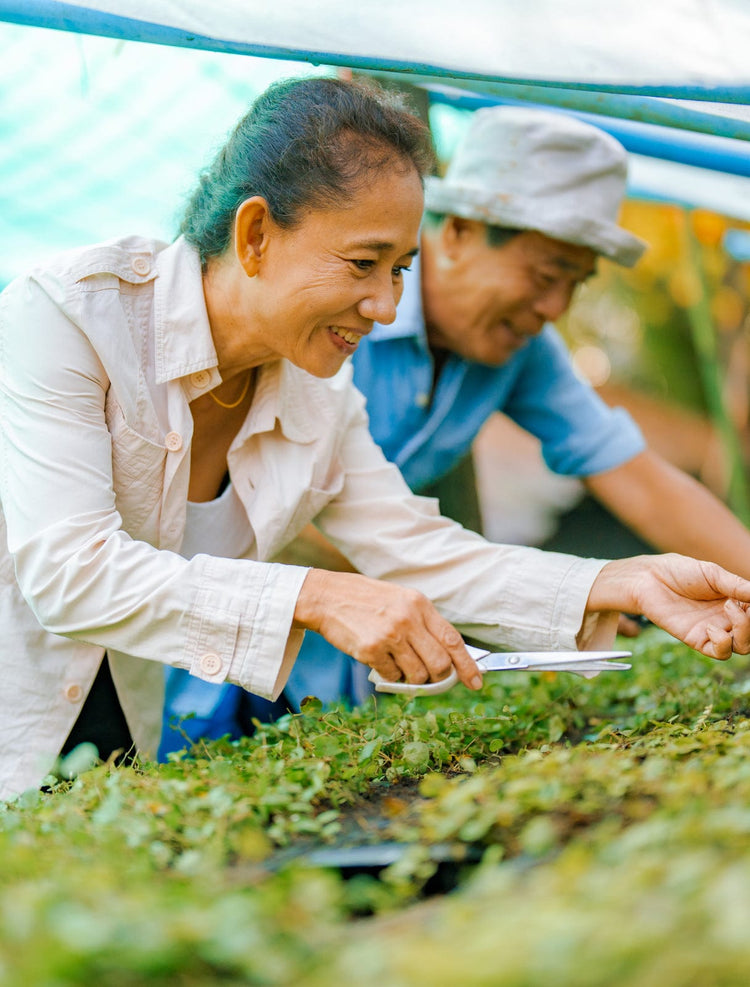
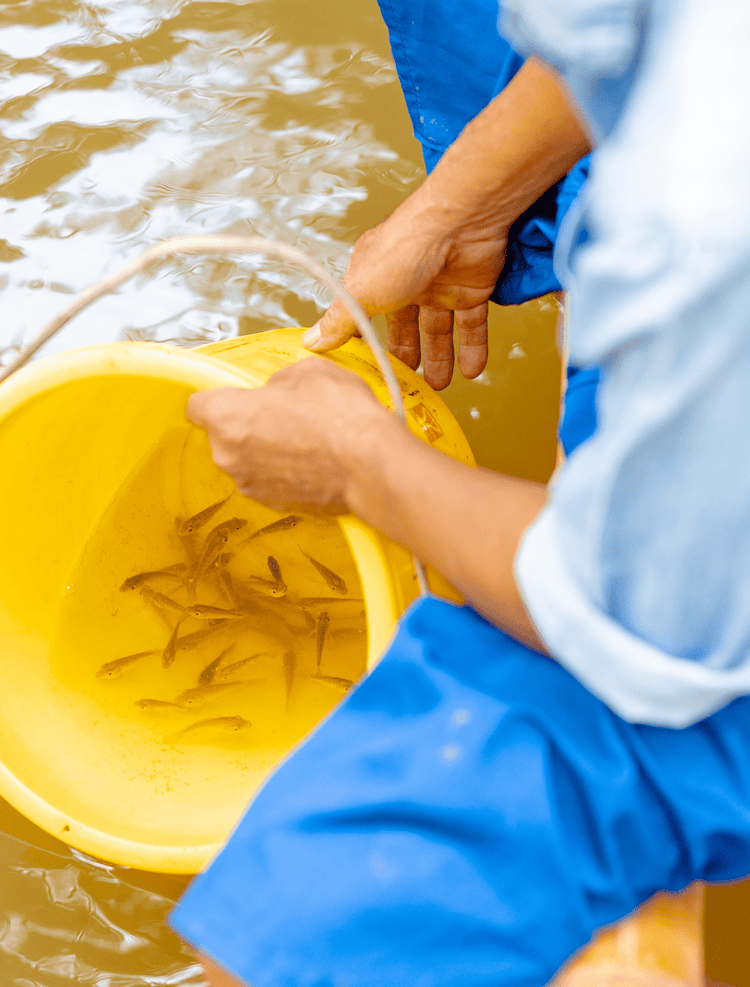
Our team on the ground in Thailand will then take these practices to our farm partners to utilize.
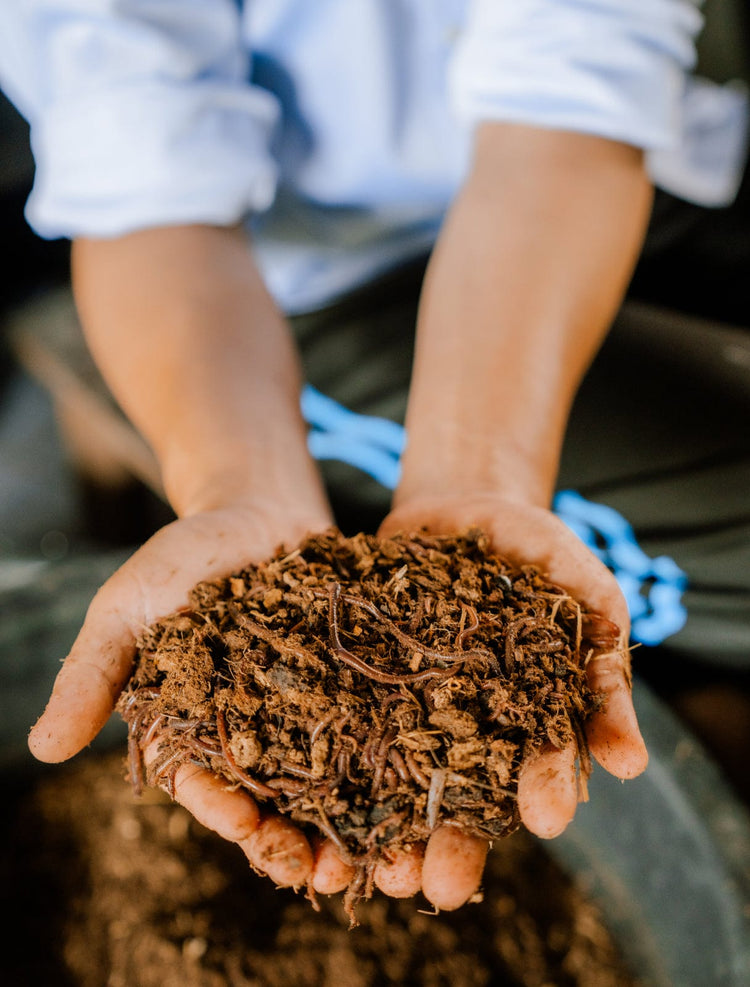
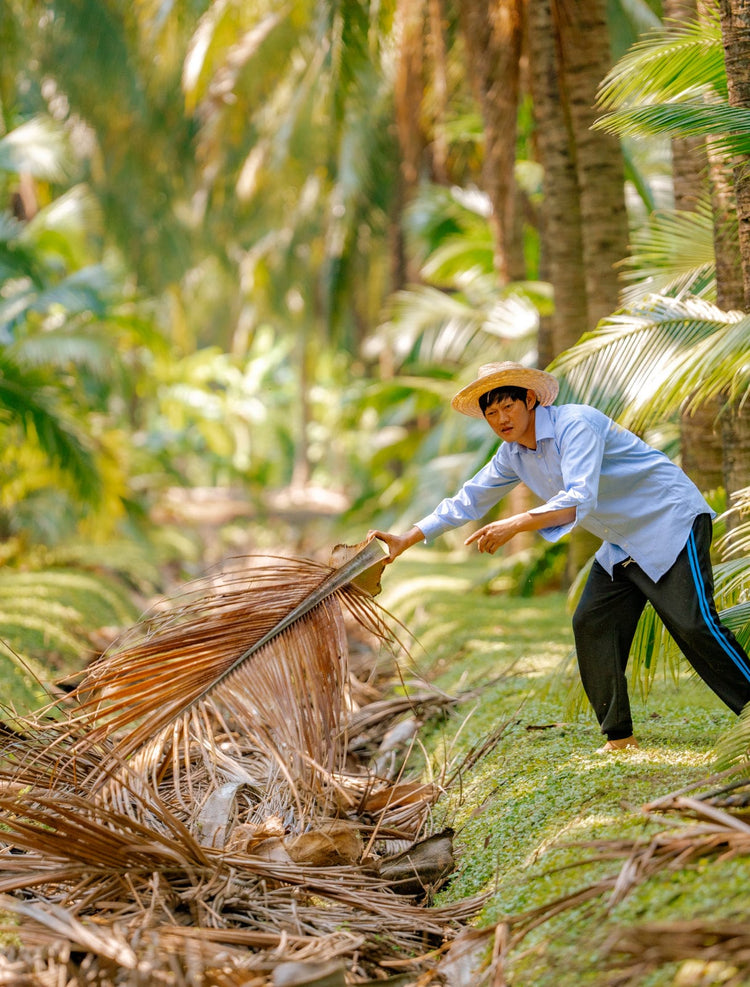
Announcing
we are
Sustainability and continuous improvement have always been our misson- now we are proud to be a Certified B Corp!
Here’s what we proudly achieved, and continue to build on...
Sustainability and continuous improvement have always been our misson- now we are proud to be a Certified B Corp!
Here’s what we proudly achieved, and continue to build on...
We are proud of the work we're
doing to address the climate,
but more importantly, of
the continued support
in our communities.
What is
fair for life?
Fair For Life is a certification that ensures products are produced and sold in a way that benefits both the environment and the people involved in their production. As a part of our commitment, a portion of the cost of every coconut we buy is allocated to a community fund in Thailand. These funds are invested in local projects chosen by the communities themselves, ensuring the support goes where it’s needed most.






SInce 2015 we have
Donated over $2.2M to development activities
in our THai-Based Coconut CommunitIes!
These dollars supported things like:
Project School Bag
- This project aims to support educational equipment and reduce financial burdens for parents in the coconut community.
- We have distributed school bags to 22 schools covering 2,483 students.
Project Water Filtration
- Ensures reliable access to clean, cool drinking water for students, promoting health and well-being in underserved schools.
- The project maintained existing water filtration systems in 14 schools and installed cold water dispensers in 6 schools.
Regenerative Agriculture Initiatives
- Promotes long-term sustainability and resilience in coconut farming communities through regenerative organic practices.
- Approximately 437 coconut farmers engaged through training, implementation, and research initiatives.
OUR TEAM, DOING
GOOD TOGETHER.
We love coming together, whether it’s to build team culture or support the communities around us. Our Thailand office was recently recognized with the Happy Workplace Award, for its commitment to integrity and morale. Closer to our HQ in Oakland, we volunteer with Acta Non Verba: Youth Farm Project focused on supporting urban farming, nutrition education, and healthy living for youth and families. It’s all a part of our mission to support Oakland-based organizations that promote better farming practices and address local food deserts. We’re all about creating and doing good together. (Check out our pics!)






Thank You!
A huge thank you to our teams in Thailand and the U.S., our farmer partners and our fans. Thank you for your continued support over the years, we wouldn’t be able to spread so much coconut goodness without the love and support of people like you.
Always.
No Harm, All Good? We’re making good progress.
pronounced Kop Khun, meaning thank you!
Thank you for being a part
of this journey.
